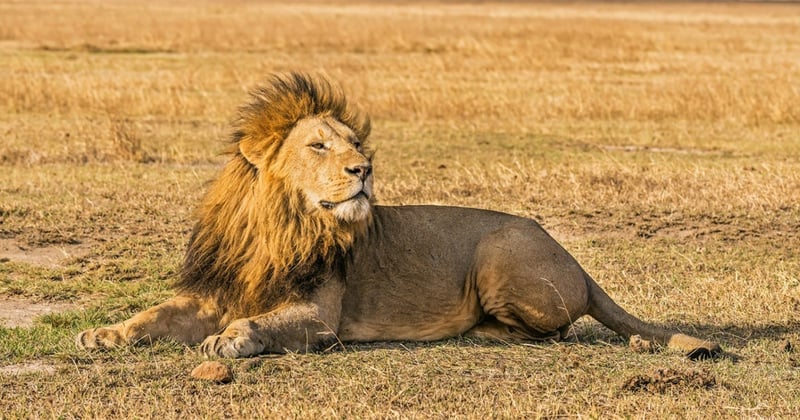
Moving the world to protect lions
News
Wild animals should be protected and allowed to live the wild life they deserve.
Back in May, we celebrated when the Minister of South Africa’s Department of Forestry Fisheries and Environment (DFFE) announced the government would put an immediate halt to the commercial exploitation of captive lions, as well as establish a process to close captive lion facilities.
Following this landmark announcement, DFFE embarked on putting in place a policy position to guide the implementation of the industry’s closure. Now, within three months of the announcement, the Minister has publicly released a draft policy position paper and requested public comments.
World Animal Protection answered the DFFE’s call for comments to the draft policy by applauding its proposal to “put an immediate halt to the commercial exploitation of captive lions and establish a process to close captive lion facilities”. But, we also shared our concern that the draft policy position included, as one of its five priority conservation policy interventions, to “re-position South Africa as a destination of choice for legal, humane, regulated and responsible hunting.”
There is a general consensus locally and globally that the commercial captive lion industry threatens both South Africa’s reputation and the survival of lions, as well as risking negative impacts on tourism, public health and safety, and many communities whose spiritually value lions. According to our report, Trading Cruelty – How Big Cat Farming Fuels the Traditional Medicine Industry, African lion populations declined by 43 per cent between 1993 and 2014, with only approximately 20,000 left in the wild. It was this consensus that led to the recommendation to shut down the captive lion breeding industry.
In our response, we provided evidence to illustrate that public concerns and discomfort about the ethics of trophy hunting have intensified in recent years, and there are specific concerns over the negative consequences of trophy hunting on species populations, biodiversity, and wildlife conservation.
Together with six other NGO’s, we have proposed the concept of a “New Deal” for wildlife in South Africa and should instead work to develop the country’s wildlife-friendly tourism industry to safeguard ecosystems and recognize the intrinsic value of wild animals as sentient beings. Such an undertaking would aid the protection and enhancement of South Africa’s international reputation as a global conservation leader, while simultaneously repositioning the country as an even more competitive destination of choice for responsible travelers and tour operators.
We hope the leadership shown by South Africa will inspire other countries in the region and beyond to follow and make similar commitments. We also hope that in the implementation of these commitments, South Africa strives for environmental policies that protect individual wild animals because lions and all other wild animals have a right to a wild life.